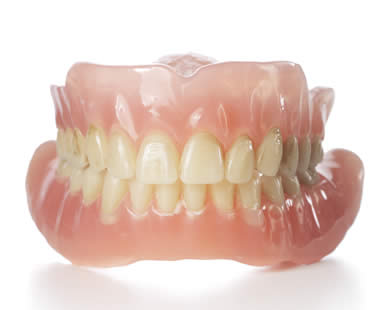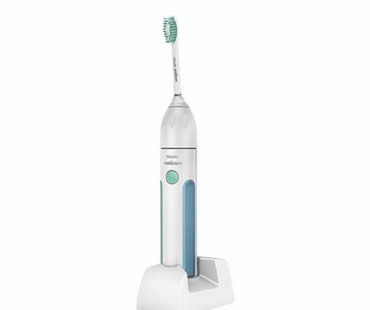
Have you lost all or most of your teeth due to damage, disease or decay and don’t find traditional removable dentures an attractive option? Implant-supported hybrid dentures are an alternative to traditional dentures that provide a secure and stable prosthetic replacement for missing teeth by combining the benefits of a fixed replacement with the advantages of a removable denture. Hybrid dentures are an especially viable option for patients who have lost a large amount of jawbone due to missing teeth. Some of the benefits of hybrid dentures include:
- Hybrid dentures save your natural roots and preserves bone while reducing bone resorption and deterioration.
- Hybrid dentures help to control facial contour changes caused by missing teeth.
- Hybrid dentures function more naturally, allowing you to chew food better and speak more clearly.
- With hybrid dentures, there is no need for messy denture creams and adhesives, eliminating much of the embarrassment associated with loose dentures.
- Hybrid dentures eliminate the slippage, clacking and loss of taste associated with traditional dentures.
If you would like fixed teeth to replace teeth that you have lost but are not ready or a candidate for multiple individual implants for each missing tooth, hybrid dentures could be your solution. Hybrid dentures require only a few dental implants to secure the new teeth in place, allowing for quicker recovery time and increased comfort.
If you are seeking an alternative to traditional dentures to replace your missing teeth, talk with your dental professional to determine if you are a good candidate for hybrid dentures. With hybrid dentures, you can successfully restore the look, feel, and function of your natural teeth.
Our dental office is located in Meriden

It may be obvious when you’re in a situation that requires immediate treatment by a dentist. Perhaps you’re in immense pain, or you’ve had a tooth knocked out or bleeding that won’t stop. Examples like this make it easy to decide you need help right away, but sometimes it’s not as clear. What are some other problems that may require emergency dental treatment?
Cracked teeth
A cracked or fractured tooth is serious, and often means that the tooth has been damaged both on the inside and the outside. Many times the tooth can’t be saved. If your tooth is broken, schedule an emergency appointment immediately. Remember, a cracked tooth is different than a chipped tooth, which is not as serious. You can usually wait to see your dentist at the next available opportunity for a chipped tooth.
Lost fillings
Some lost fillings require immediate care to avoid worse issues. Fillings protect your tooth’s root from exposure, so if the filling falls out your root can be uncovered and cause intense pain. There is also increased risk for damage to your tooth’s structure, so seeing your dentist as soon as possible is suggested.
Lost crown
If your crown falls out, call your dentist for an appointment as soon as possible. Until you can see the dentist, try putting the crown back in place using an over-the-counter dental adhesive. Do not use any products like Super Glue. If the crown won’t stay in place, make sure you take it to your appointment with you so that it can be re-cemented correctly.
Abscess
If you have a painful swelling on your gum that resembles a pimple, it might be a serious condition called an abscess. It can damage gum tissue and teeth, as well as spread serious infection to your body. See your dentist immediately for proper treatment.
Schedule your appointment at our Meriden dental office

One of the most important decision for the health of you and your family is a family dentist. Similar to a general dentist, family dentists offer a few significant exceptions. Both types of dentists treat oral health and manage dental hygiene, but family dentists offer care to patients of all ages. This makes family dentistry a convenient choice especially if you have family members of various ages in your home.
Traditional dental services that you’d expect from any dentist are available at a family dental office. Preventative services like professional cleanings, fluoride treatments, and thorough examinations are offered. Regular checkups allow for diagnostic tests to catch problems in their early stages, before they have a chance to advance and become very painful or complicated to repair. Procedures like dental fillings, bonding, root canal therapy, teeth whitening and more are often available through your family dentist. If specialized care is required that is not performed in the office, the dentist will provide a referral to an appropriate specialist for treatment.
Finding the right family dental practice for your whole family is vital. This will increase the comfort level of your family members and promote checkups every six months as advised by dentists. To choose your family dentist, ask friends, family, coworkers and neighbors for recommendations. Schedule a consultation to meet the dentist and staff, see the office, and make sure the practice meets your requirements. It is especially important to ensure children are comfortable with the family dentist to help avoid fears or anxiety. Also look for an office convenient to your home so that everyone will be more likely to keep their appointments.
From baby teeth in kids to permanent teeth in adults to missing teeth in seniors, family dentists are trained and equipped to handle everyone’s needs.
We look forward to seeing you in our Meriden dental office

Dentists say that electric toothbrushes really can make a difference in your ability to clean your teeth and gums. However, not all models provide the same amount of benefits. There are some important things to know about making your choice so that you purchase the best toothbrush for your needs. Here are some guidelines to consider when selecting an electric toothbrush.
Toothbrush heads
If several people will be using the toothbrush, look for one with assorted head sizes. Adults and children need different sizes of heads for the best results. Also, make sure you choose a model with replaceable toothbrush heads. This will save you money in the long run because you’re only discarding old heads, instead of throwing away entire electric toothbrushes.
Batteries
Your electric toothbrush needs a rechargeable battery so that you’re not investing money in new batteries all the time. Also, your fully charged toothbrush should last over a week. You shouldn’t have to charge the toothbrush all the time, just like you shouldn’t have to with other electric items like your laptop.
Spinning
Some electric toothbrushes offer a special type of head that spins all the way around, which allows you to clean areas that other brushes have a hard time reaching. A spinning brush may cost a bit more, but it really does a great job of helping to fight plaque and prevent gum disease.
Warranty
Look for a toothbrush with a warranty, especially when you’re buying an expensive model. That way if something unexpected happens, it might be covered under the warranty instead of having to purchase a whole new brush.
General and family dentist in Meriden

Though sports drinks and energy drinks may provide refreshment after a workout or keep you awake to study, they can also do serious damage to your teeth. People often think of these drinks as healthy alternatives to soda, but that’s not the case. In fact, research shows that these beverages are up to 10 times worse for your oral health than cola.
The issue with sports and energy beverages comes from the high acidity. Manufacturers add acid to these drinks to balance the sugar. Even more than soft drinks, the acid in sports and energy beverages can erode tooth enamel, which increases the odds of cavities. Once teeth are weakened by decay, you become more susceptible to future problems down the road.
Another reason sports and energy drinks are problematic is the way people consume them. Because most individuals sip on them throughout the day, teeth are continuously exposed to the acid in the beverages. To minimize the risks to your oral health, consider these tips:
- Use a straw when you consume these beverages because it restricts the amount of liquid that gets on your teeth.
- Chew sugar-free gum, which promotes saliva production and rinses the acid from your teeth.
- Brush your teeth right after drinking sugary beverages to remove any residue and keep teeth healthy.
- Make H2O your first choice. Consuming lots of water and limiting intake of sodas, sports beverages, or energy drinks will help you stay hydrated and promote good oral health.
Family and general dentist in Meriden

Teaching your kids good dental habits and making sure they get dental care are some of the most important things you can do for them. Guidelines for helping your child improve their oral health depend upon their ages. Here are some oral health tips for various stages of childhood.
Infants (up to 2 years):
It’s never too early to begin oral care! Clean your baby’s gums with a damp cloth after feedings to remove bacteria. Once the first tooth erupts, use a soft toothbrush for babies to gently brush the teeth and gums. Use a pea-sized dab of toothpaste and brush at least twice a day. Around the first birthday, begin taking your child to the dentist for regular checkups.
Preschoolers (2-4 years):
This age group has the highest incidence of tooth decay, because most preschoolers love sugary foods but may not love brushing their teeth. Brush your child’s teeth yourself until they are old enough to do it well, but continue supervising the process to make sure all areas are clean. Consider flavored or character fluoride toothpastes if it encourages your child to brush. Also, limit the amount of sugary foods and drinks your child consumes.
Young elementary (5-7 years):
As more and more teeth grow in, your child needs to brush carefully with fluoride toothpaste. Make sure all areas of your child’s mouth are being reached, and help your child use dental floss to clean between teeth and gums. Continue helping your child make healthy diet choices.
Older kids (over 8 years):
Most children should be able to brush on their own by age 8, but performing spot checks is a good idea to make sure they are doing a good job. Teach your child to brush after meals, especially when eating sugary or sticky foods, and emphasize the importance of flossing every day. Continue taking your child for regular dental checkups every six months, which will help create a life-long habit of good oral care.
We treat patients from Meriden and the surrounding area














